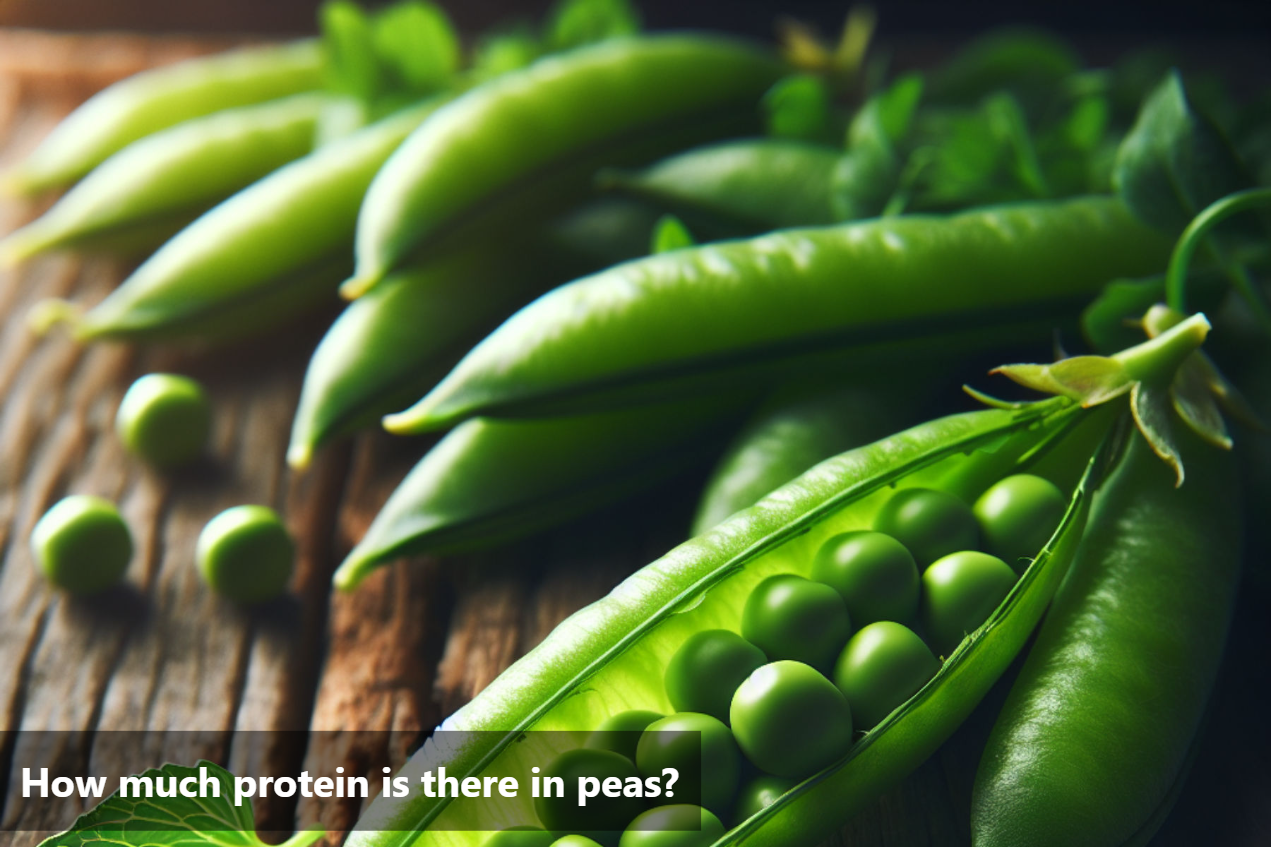
How much protein is there in peas?
Peas are not only a versatile vegetable but also a great source of protein. When we talk about protein in peas, we often underestimate the nutritional benefits they offer. These tiny green powerhouses pack a surprising punch when it comes to protein content.
Protein is an essential component of a balanced diet, crucial for muscle growth and repair. Incorporating protein-rich foods like peas can help meet daily protein requirements and promote overall well-being. In addition to protein, peas are also rich in vitamins, minerals, and fiber, making them a valuable addition to any meal.
Surprisingly, a single serving of green peas contains a significant amount of protein, comparable to other protein sources. This makes peas a convenient and plant-based option for those looking to boost their protein intake. Adding peas to salads, soups, or stir-fries can easily enhance the protein content of a meal.
In this blog section, we will delve deeper into the protein content of green peas and their role in supporting a healthy and balanced diet. Let's uncover the potential of peas as a protein source and explore creative ways to incorporate them into your daily meals for a nutritious boost.

Nutritional Benefits of Peas
A 1/2 cup (80-gram) serving of cooked peas provides the following nutrients:
Calories |
67 |
Carbs |
12.5 grams |
Fiber |
4.4 grams |
Protein |
4.3 grams |
Vitamin A |
3.6% of the DV |
Vitamin K |
17% of the DV |
Vitamin C |
12.6% of the DV |
Thiamine |
17% of the DV |
Folate |
12.6% of the DV |
Manganese |
18% of the DV |
Iron |
6.8% of the DV |
Phosphorus |
7.5% of the DV |
Incorporating Peas into a High-Protein Diet
-
Pea Soup:
Make a hearty and nutritious pea soup by simmering peas with onions, garlic, vegetable broth, and herbs like thyme or mint. Blend until smooth for a creamy texture, and serve hot with a dollop of yogurt or a sprinkle of crispy bacon bits.
-
Pea Salad:
Create a vibrant and refreshing pea salad by combining blanched peas with chopped cucumber, cherry tomatoes, red onion, and feta cheese. Dress with a light vinaigrette made with olive oil, lemon juice, Dijon mustard, and honey for a delicious side dish or light lunch option.
-
Pea Risotto:
Prepare a creamy and comforting pea risotto by sautéing Arborio rice with shallots, garlic, and white wine until absorbed. Gradually add vegetable broth and stir in fresh or frozen peas towards the end of cooking. Finish with grated Parmesan cheese and chopped parsley for a flavorful and satisfying meal.
-
Pea Stir-Fry:
Whip up a quick and nutritious pea stir-fry by tossing blanched peas with sliced bell peppers, snap peas, carrots, and tofu or shrimp in a hot wok with a drizzle of sesame oil and soy sauce. Serve over cooked brown rice or quinoa for a complete and balanced meal.
-
Minty Pea Pesto:
Prepare a vibrant and versatile minty pea pesto by blending cooked peas with fresh mint leaves, garlic, lemon zest, Parmesan cheese, and toasted pine nuts or almonds until smooth. Use as a spread on toast or sandwiches, toss with pasta, or serve as a dip with crudité for a flavorful twist on traditional pesto.

Exploring the Protein Levels in Peas
Peas, a humble vegetable packed with nutrition and protein, can be a valuable addition to your diet. Green peas, in particular, offer a surprising amount of protein per serving, making them an excellent choice for those seeking to boost their protein intake in a healthy and sustainable way.
Incorporating peas into your meals can not only provide you with a good dose of protein but also offer essential vitamins, minerals, and fiber. This nutritional powerhouse can support your overall health and well-being.
By adding peas to your diet, you are not only enhancing the protein content of your meals but also introducing a versatile ingredient that can be used in a variety of dishes. From soups and salads to stir-fries and casseroles, the possibilities are endless when it comes to including peas in your culinary creations.
FAQs
-
How much protein is there in peas?
Peas are a good source of plant-based protein, with about 5-9 grams of protein per 1 cup serving, depending on the type of peas.
-
Are peas a complete protein source?
Although peas are not a complete protein on their own, when combined with other plant-based protein sources like grains or legumes, they can provide all essential amino acids.
-
Can peas be a part of a high-protein diet?
Yes, peas can be a valuable part of a high-protein diet, especially for vegetarians and vegans looking for alternative protein sources.
-
Are there any other nutrients in peas besides protein?
Peas contain fiber, vitamins, and minerals, making them a nutritious addition to a balanced diet.
-
Are there different types of peas with varying protein content?
Yes, there are various types of peas, such as green peas, split peas, and chickpeas, each with different protein contents.
This Blog post is an initiative by Lo! Foods, to provide accurate and Nutritionist / Doctor approved information related to Health. Lo! Foods is India's leading brand for Everyday Functional Foods. Foods designed for specific Health conditions or Needs. Lo! Foods also runs India's largest range of Low Carb Healthy Cloud Kitchens, under the brand names of Lo!, ProteinChef, ATH (All Things Healthy) and DiabeSmart.















Leave a comment
Your email address will not be published.